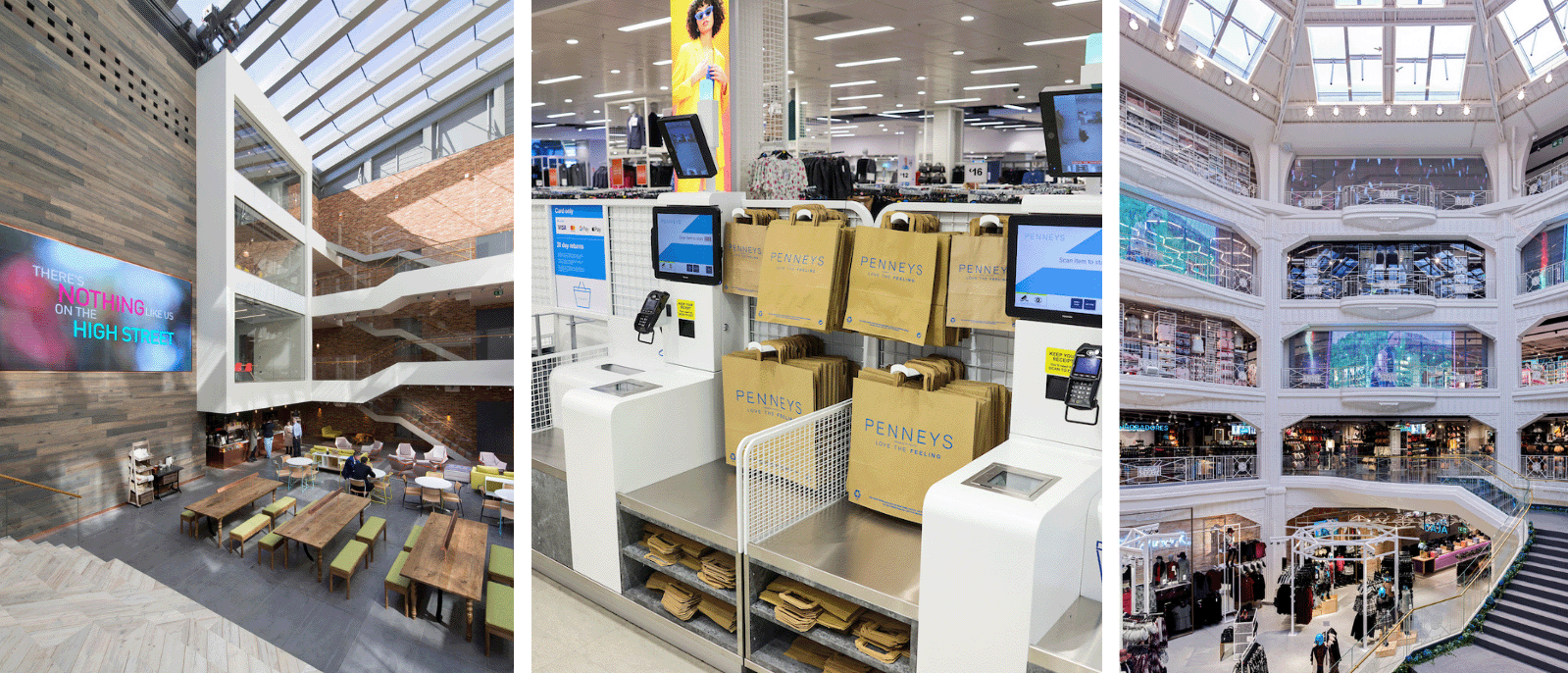The relationship between Penneys (Primark) and Technological University Dublin's innovative MSc Fashion Buying & Management dates to 2008. The one-year, full-time course is designed for graduates seeking to break into the exciting and fast-paced fashion buying industry and a significant number of the more than 350 students who have taken the programme over the past 16 years have found rewarding careers with Primark.
“We have about 200 people who have come to Primark through this route over the years and many of them are senior members of the team today,” says Primark Trade Director Anne Marie Cregan. “We wouldn't have been able to recruit as effectively over the years at entry level, particularly in buying, without this course. There is no other comparable academic pipeline in Ireland.”
We wouldn't have been able to recruit as effectively over the years at entry level, particularly in buying, without this course. There is no other comparable academic pipeline in Ireland
Anne Marie Cregan, Primark Trade Director Anne Marie Cregan
Primark and TU Dublin Partnership
The relationship has very much been a win-win for both partners, according to Programme Director Barbara Mohan. “Primark has been very heavily invested from the very beginning” she explains. That involvement has included the establishment of the Arthur Ryan Retail Centre at the university to support research in the area of retail and fashion as well as setting projects and providing placements for MSc students.
“Our association with Primark is really important to us,” she adds. “It is a huge global company; it’s retail at scale. They have a lot to offer us, and we have a huge amount to offer them. In a nutshell, we provide Primark with graduates that are ready to go from a commercial point of view.”
The partnership evolved significantly during the Covid pandemic. Restrictions imposed during the pandemic meant that students were prevented from undertaking placements and projects with employers like Primark. That meant a novel approach was required.
“We need to pivot very quickly,” says Mohan. “We contacted Primark and asked them if they would be open to students doing research instead of going on placements. The research would be linked to the buying office. They were completely on board for that straight away. In fact, they were really delighted, and very quickly produced several topics that they wanted students to do research on.”

Retail Research Projects
The Primark research projects formed an element of the students’ overall projects for the MSc programme and were assessed for credits by TU Dublin academic staff.
“The projects can be practical and focus on topics like diversity and inclusion and sustainability,” Mohan explains. “Primark suggests the topics and the student then selects which one they want research on. Students carry out the research and then present the results back to Primark. Up to 9 research projects are carried out each year and two are selected to be presented to Primark senior management after the initial presentation.”
Maintaining the relationship with TU Dublin during the pandemic was important to Primark. “While we weren't recruiting, we wanted to make sure that we continued to support the students,” Cregan points out. “We set assignments and briefed the students on them. We also allocated a sponsor from within our business for each assignment. We identified high potential junior to middle managers to support the students. They gave the students insights into life in Primark as well as guidance on how they might approach their topics. We also broadened the net much wider than buying and merchandising; into sustainability, innovation, diversity, and inclusion.
Research projects were first presented to a panel and then the students had a wonderful opportunity to present to our to a cross section of senior leaders and members of the Primark Board.
Fresh perspectives and new opportunities
The new thinking from the students has proved valuable for the company. “There is a freedom in their thinking,” says Cregan. “It is free from any kind of “senior management think.” That’s a real advantage to us in terms of reverse mentoring. It pushes the boundaries and gives us a perspective from those close to our customers. It's very fresh, and it is brilliant in how it can uncover new opportunities or new ways of approaching genuine business problems.”
That’s a real advantage to us in terms of reverse mentoring. It pushes the boundaries and gives us a perspective from those close to our customers. It's very fresh, and it is brilliant in how it can uncover new opportunities or new ways of approaching genuine business problems.
Anne Marie Cregan, Primark Trade Director Anne Marie Cregan
One example of that fresh thinking was a project which proposed a new line in shapeware for men. “A lot of people internally would have thought there is no way men would wear shapewear, but it’s a lovely concept and the product has now been launched. We are starting to get some positive customer feedback which is lovely to see. I think if that external perspective had not been given, the idea would have been shut down internally because the concept had never been researched or presented in that way before.”
Another project involved adaptive underwear for people with physical disabilities. The range successfully launched in January this year says Cregan. “But it’s not just about the product launch, it has also led us to bring people in to work with us on the accessibility of Primark in general and in line with the product launch we have made a public commitment on making Primark more accessible for all our colleagues and customers."

Research ideas with go-to-market strategies
MSc Fashion Buying & Management graduate and current Primark Trainee Buyer Hannah Hoban decided to focus on sustainability for her project. “I looked at refillable packaging in the Primark beauty and skin care range because that is an area where they have really enhanced their offering over the last couple of years. You can see on social media with a lot of Primark products going viral that they are a real contender for affordable skin care and beauty for many people.”
She chose beauty and skin care for practical reasons. “I think it's important to pick something that you really can change, a tangible thing that is actually achievable,” she explains. “I looked at refillable packaging and what other leaders in the industry were doing and how that could be transferred to more of a value price point. I looked at how we could adapt that for Primark’s value customers and how that could speak to them.”

Communication to customers is important as refillable packaging is not only better for the environment, but also kinder on the pocket. “The more ornate and fancy a packaging is, the more expensive the sale price for that item is going to be. With a refill, you can just buy a tub of the product at a lower price point and use it to refill a more elaborate and ornate packaging. It saves the environment and the cost of repurchasing that chunky packaging every single time.”
Real world experience - presenting to senior management
Hoban was one of the students selected to present to Primark’s CEO Paul Marchant along with other senior executives. “It was a little bit more daunting than the first presentation. You don't have the comfort of sitting behind your laptop with your perfectly written notes, but it was a positive experience. I think if you're passionate about the project and the work you've done, you're going to know what you're talking about. It was a very receptive atmosphere in the room and a wonderful experience.”
It’s a learning experience for Primark as well, according to Cregan. “More than anything, it provokes us to look at ourselves and criticise ourselves in an effective way. It makes us ask what we could have done better and what we can do better in the future and what we need to do now to ensure that we're putting the investment where it really matters to our customers.”
Barbara Mohan agrees. “The research projects give Primark a fresh set of eyes. When you're working within an organisation, you can become quite blind to what's going on outside. Our students are representative of consumers, and they're not biased. They're going to say it as they see it. If a company paid a market researcher to do the research, there is a natural tendency to keep the client a little bit sweet. That’s not the case with the students. They come back and tell it as it is in a very professional manner. Both the students and Primark get so much out of the partnership.”

